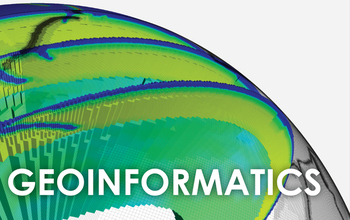New Geoinformatics Solicitation and Informational Webinar
April 22, 2019
A new solicitation has been posted for the Geoinformatics (GI) program from the Division of Earth Sciences, NSF 19-561. Please note that there are substantive changes to the program, including the addition of three possible tracks for projects. The target date for submission of proposals is August 15, 2019.
A webinar will be held on Tuesday, May 14 at 2 p.m. EDT, with a brief overview of the program and the opportunity to ask questions. Please email swhitmey@nsf.gov by 5 p.m. on Friday, May 10 to enroll in the webinar.
SYNOPSIS
The Division of Earth Sciences (EAR) will consider proposals for the development of cyberinfrastructure (CI) for the Earth Sciences (Geoinformatics). EAR-supported geoinformatics opportunities will fit into three tracks: Catalytic track, Facility track, and Sustainability track. These tracks broadly support the lifecycle of geoinformatics resource development, from pilots (Catalytic) to broad implementation (Facility) to sunsetting and long-term sustainability (Sustainability).
The GI Catalytic Track will support pilot geoinformatics development efforts that are intended to serve Earth Sciences research.
The GI Facility Track will support awards for implementation and operation of a cyberinfrastructure resource relied upon by one or more Earth Sciences communities to address science questions.
The GI Sustainability Track will support development and implementation of sustainable funding models to preserve data and software products of value to Earth Sciences research.
If you would like timely news from the Division of Earth Sciences (EAR), subscribe to EAR Express Updates newsletter by sending a blank email to earth-subscribe-request@listserv.nsf.gov. You can unsubscribe at any time by emailing earth-unsubscribe-request@listserv.nsf.gov. Send updates and highlights about your NSF-funded research and education projects to EAR Communication.
The U.S. National Science Foundation propels the nation forward by advancing fundamental research in all fields of science and engineering. NSF supports research and people by providing facilities, instruments and funding to support their ingenuity and sustain the U.S. as a global leader in research and innovation. With a fiscal year 2023 budget of $9.5 billion, NSF funds reach all 50 states through grants to nearly 2,000 colleges, universities and institutions. Each year, NSF receives more than 40,000 competitive proposals and makes about 11,000 new awards. Those awards include support for cooperative research with industry, Arctic and Antarctic research and operations, and U.S. participation in international scientific efforts.
Connect with us online
NSF website: nsf.gov
NSF News: nsf.gov/news
For News Media: nsf.gov/news/newsroom
Statistics: nsf.gov/statistics/
Awards database: nsf.gov/awardsearch/
Follow us on social
Twitter: twitter.com/NSF
Facebook: facebook.com/US.NSF
Instagram: instagram.com/nsfgov

